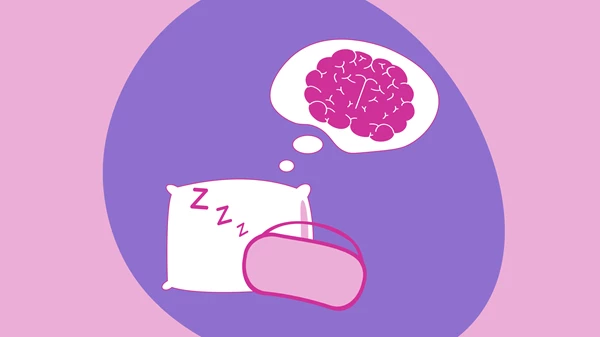Studies reveal the critical role of sleep in the formation of memories
Economic prosperity and happiness in China might be correlated if inequality is low / The summer of 2023 was the hottest in 2,000 years
As anyone who has ever stared blankly at a test with groggy eyes knows, a lack of sleep can significantly impede the ability to retain information.
Two recent studies conducted at the University of Michigan have elucidated the reasons for this phenomenon and the processes that occur within the brain during sleep and sleep deprivation to either facilitate or impede the formation of memories.
Specific stimuli can be used to tune specific neurons
In a maze, rats, for instance, will have neurons that illuminate when the animal reaches specific locations within the maze. These neurons, which are referred to as "place neurons," are also active in humans and assist individuals in navigating their surroundings.
However, what transpires during the period of sleep?
"If that neuron is responding during sleep, what can you infer from that?" stated Kamran Diba, Ph.D., an associate professor of anesthesiology at the University of Michigan Medical School.
Diba and her former graduate student, Kourosh Maboudi, Ph.D., conducted a study that was published in the journal Nature. The study examined neurons in the hippocampus, a deep brain structure resembling a seahorse that is involved in memory formation. The researchers discovered a method for visualising the tuning of neuronal patterns associated with a location while the animal was asleep.
The hippocampus emits sharp-wave ripples, a type of electrical activity, every few seconds over the course of several hours, during restful states and sleep.
The researchers have been captivated by the synchrony of the ripples and the distance they travel, which appear to be intended to disseminate information from one region of the brain to another. It is hypothesised that these firings enable neurons to establish and revise memories, including those related to location. The team measured the brain activity of a rat during sleep after the rat completed a new maze for the study.
The first time they were able to track which neurons would respond to which places in the maze was through the use of a type of statistical inference known as Bayesian learning.
"Let's say a neuron prefers a certain corner of the maze. We might see that neuron activate with others that show a similar preference during sleep. But sometimes neurons associated with other areas might co-activate with that cell. We then saw that when we put it back on the maze, the location preferences of neurons changed depending on which cells they fired with during sleep," said Diba. The method enables them to observe the representational drift or plasticity of the neurons in real time.

It also provides additional evidence for the long-standing hypothesis that the importance of sleep in the formation of memories is due to the reactivation of neurons during sleep.
Given the significance of sleep, Diba's team sought to investigate the brain's response to sleep deprivation.
In the second study, which was also published in Nature, the team, led by Diba and former graduate student Bapun Giri, Ph.D., compared the amount of neuron reactivation (wherein the place neurons that fired during maze exploration spontaneously fire again at rest) and the sequence of their reactivation (quantified as replay) during sleep vs. during sleep loss.
They found that the firing patterns of neurons involved in reactivating and replaying the maze experience were higher during sleep than during sleep deprivation.
A similar or higher rate of sharp-wave ripples was associated with sleep deprivation, but the amplitude of the waves and the power ripples were lower.
"In almost half the cases, however, reactivation of the maze experience during sharp-wave ripples was completely suppressed during sleep deprivation," said Diba.
He further stated that the reactivation of sleep-deprived rats was only slightly restored when they were able to catch up on sleep, but it never matched that of rats who slept normally. Additionally, replay was similarly impaired, but it was not restored upon the reacquisition of lost sleep.
The findings underscore the detrimental effects of sleep deprivation on memory, as reactivation and replay are crucial for memory.
Diba's team aspires to further investigate the nature of memory processing during sleep, the reasons for its reactivation, and the impact of sleep pressure on memory.
Journal References:
Kourosh Maboudi, Bapun Giri, Hiroyuki Miyawaki, Caleb Kemere, Kamran Diba. Retuning of hippocampal representations during sleep. Nature, 2024; 629 (8012): 630 DOI: 10.1038/s41586-024-07397-x
Bapun Giri, Nathaniel Kinsky, Utku Kaya, Kourosh Maboudi, Ted Abel, Kamran Diba. Sleep loss diminishes hippocampal reactivation and replay. Nature, 2024; DOI: 10.1038/s41586-024-07538-2
End of content
Không có tin nào tiếp theo
